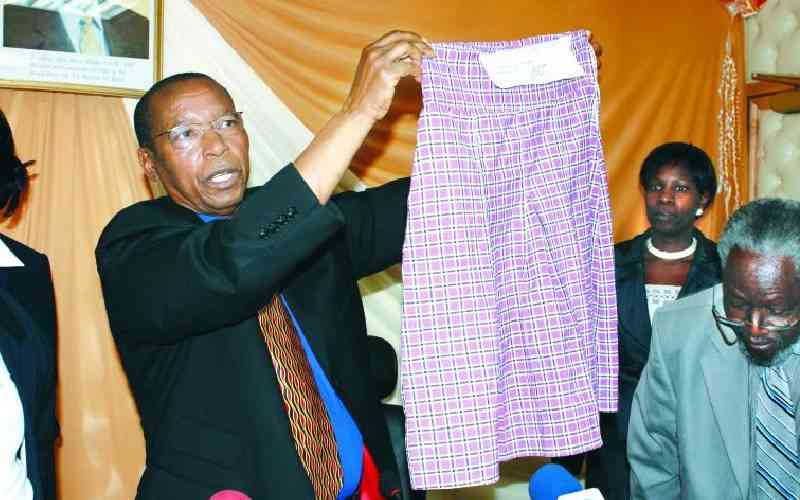×
The Standard e-Paper
Join Thousands Daily

Thursday, April 27 will be 10th anniversary of the death of Mutula Kilonzo Snr, a prominent lawyer who served as an MP as well as Education and Justice and Constitutional Affairs minister.
At the time he passed on, he was the Senator for Makueni County. His son Mutula Kilonzo Jnr was elected to replace him and served for two consecutive terms. He is today the Makueni Governor.